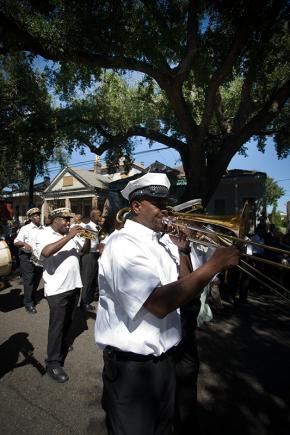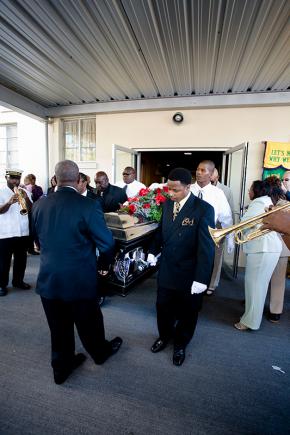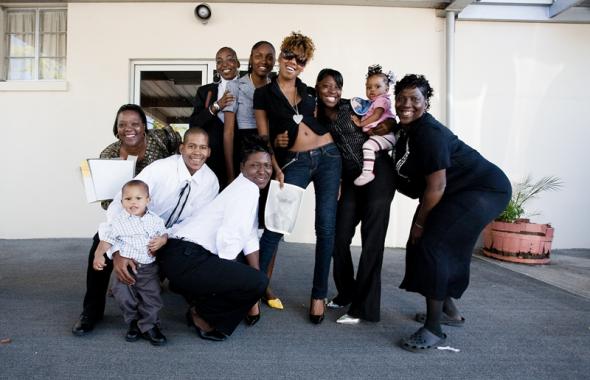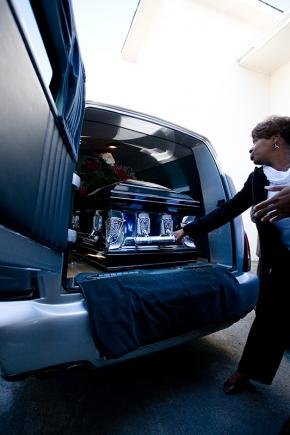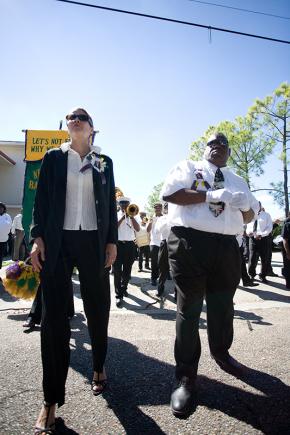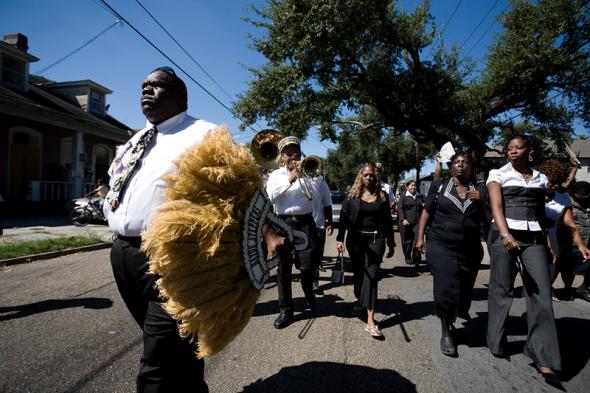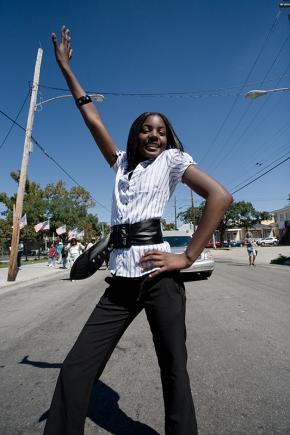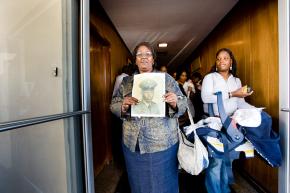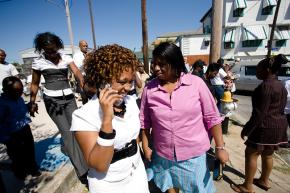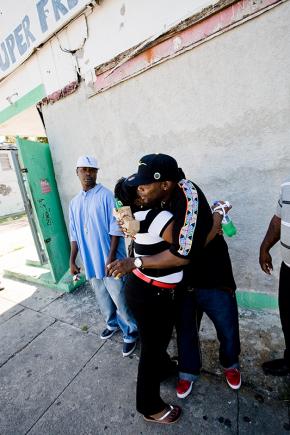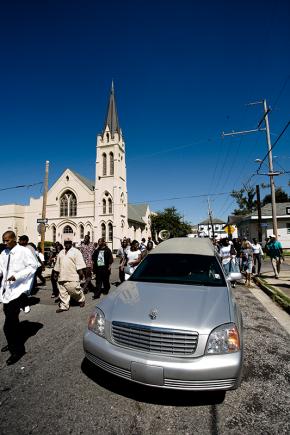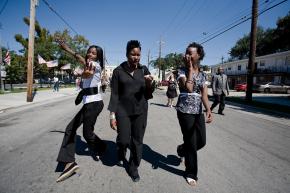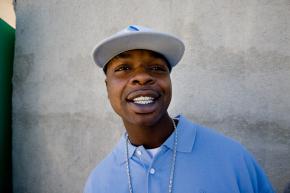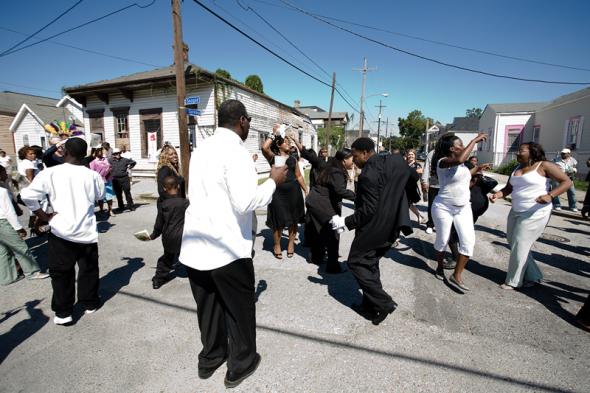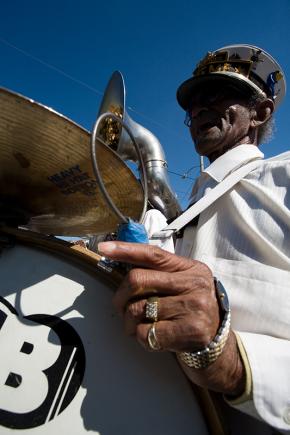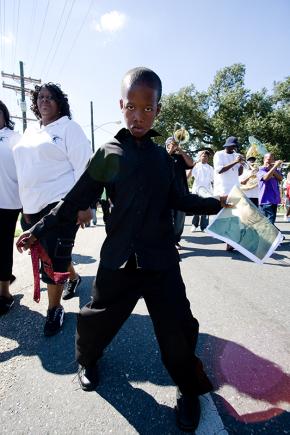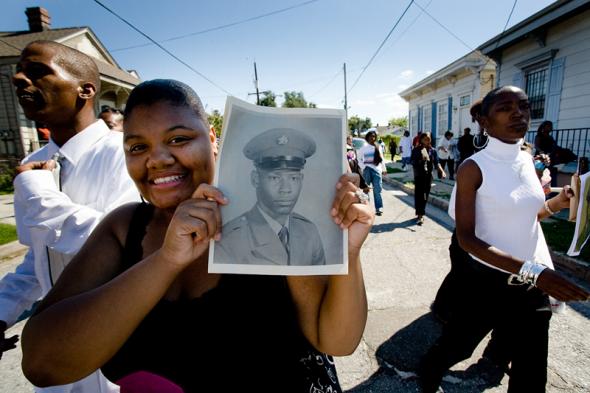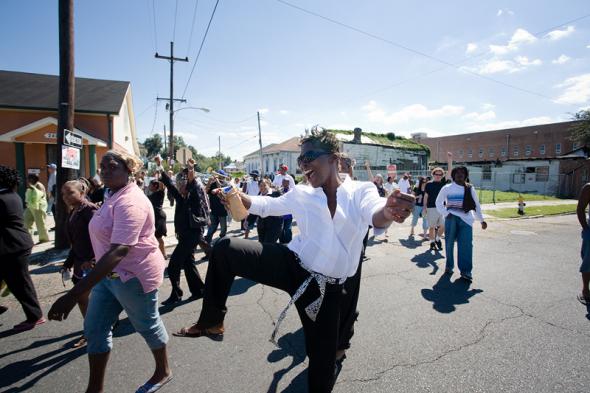New Orleans Jazz Funeral
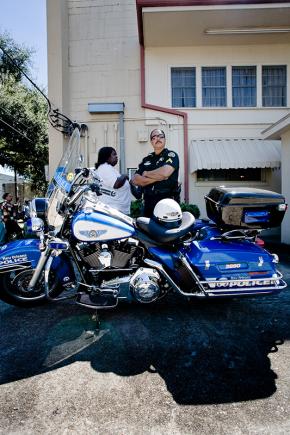 The Jazz Funeral tradition, like so many in New Orleans has its origins in Africa. The Dahomeans of Benin and the Youruba of Nigeria as well as some Gana tribes already used to celebrate death in an effusive and happy fashion four centuries before. Death is an occasion of mourning, of remembrance but also of celebration.
The Jazz Funeral tradition, like so many in New Orleans has its origins in Africa. The Dahomeans of Benin and the Youruba of Nigeria as well as some Gana tribes already used to celebrate death in an effusive and happy fashion four centuries before. Death is an occasion of mourning, of remembrance but also of celebration.
In the old times, after the wake and the funeral mass at the funeral parlor, in this case Gertrude Geddes Willis Funeral Home, on the corner of Jackson and Lassalle avenues, which serves predominantly the black community, there would be a parade with a slow and solemn march to the sound of a Dirge or of an Old Black Spiritual as for example “Nearer My God to Thee” with the coffin in a carriage and people walking with two brass bands playing, the older in the front and the younger, funkier, in the back. They would go to the local cemetery and after the body had been buried, they would continue the march through the streets of the neighborhood. Here the tempo would liven significantly to the sound of “when the Saints Go Marching in” or a ragtime piece such as “Didn’t He Ramble”, and the party would start. Today due to the use of cars and the long distances to the cemetery, the parade starts also with the slow pace with a rhythmic step marked by the Marshall, but the pace changes abruptly to his signal as soon as he deems that the distance from the Funeral Home is respectful. The band breaks quickly to an upbeat music and the parade starts to gain volume with neighbors joining in influenced by the music, the dance and the promise of a good time. After a while the car leaves with the coffin and the family while the participants and the bands stay in the neighborhood continuing the party.
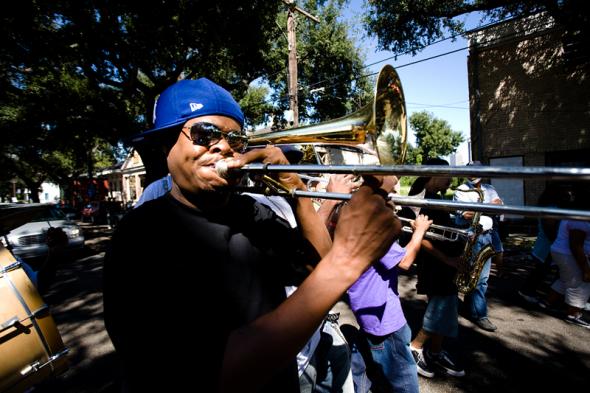 Elijah Randall was born in October 1948, served in Vietnam and died in October 2007. He had a fairly small funeral. But when the dead is a famous musician, funerals can have 10000 or more people and last for hours.
Elijah Randall was born in October 1948, served in Vietnam and died in October 2007. He had a fairly small funeral. But when the dead is a famous musician, funerals can have 10000 or more people and last for hours.
The idea of a dignifying funeral was well impregnated in the minds of the slaves. Already in Africa there were secret societies that assured a proper burial to its members in exchange for dues. For the slaves, death had another, highly emotional and spiritual meaning. Dying was a return home, to Mother Africa. It was a liberation from martyrdom and it was an occasion of jubilee. The references of returning home “Going Home” are frequent in songs, prayers and funeral pamphlets. After Slavery was abolished, there were many Social Aid and Pleasure Clubs formed in New Orleans which were benevolent societies that organized social activities, provided funerals for the members and helped maintain the tradition alive. Many of those societies are still active and when people doubted that New Orleans could be reborn form Hurricane katrina, it was those societies and many other traditions that live in the hearts of the people that motivated them to return and rebuild their lives in the city they love.
